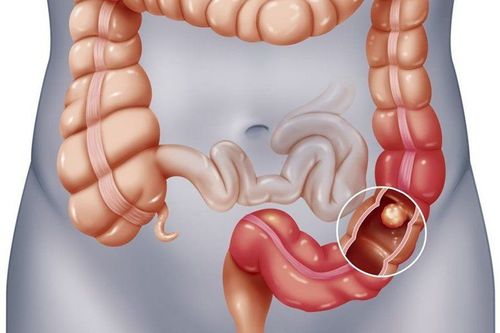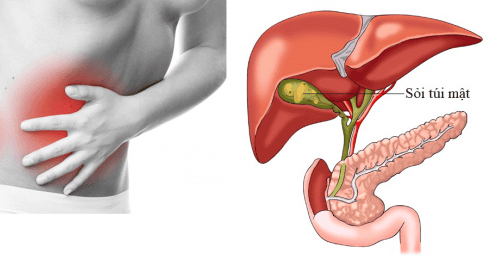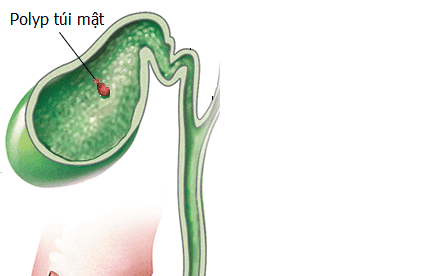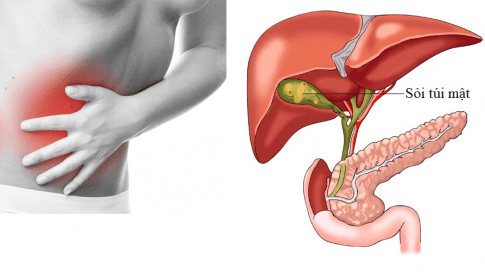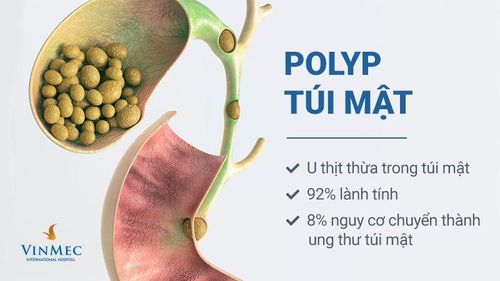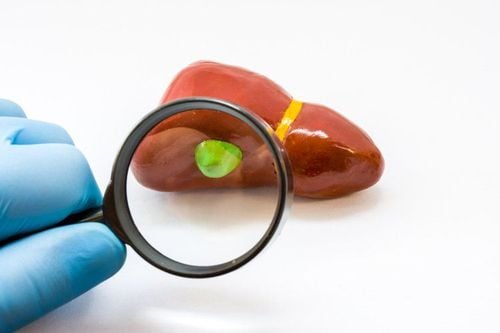This is an automatically translated article.
The article was professionally consulted by Doctor Gastroenterologist, Department of Examination & Internal Medicine - Vinmec Hai Phong International General Hospital
Gallbladder polyp is an overgrowth of the lining of the gallbladder wall. Fortunately, 95% of polyps are benign. However, there is still about a 5% risk of developing gallbladder cancer. So when does gallbladder polyp need surgery, please refer to the article below!
1. What are gallbladder polyps?
Gallbladder polyp is a tumor-like or pseudotumor lesion that develops on the surface of the gallbladder mucosa, is an organizational form that originates from the gallbladder wall and protrudes into the gallbladder lumen. Gallbladder polyps can occur at any age, but they are most common in adults. Gallbladder polyps affect about 7% of the adult population with etiology not yet known, but with an association with age and the presence of gallstones.
About 95% of gallbladder polyps are benign, cause no symptoms, so they are often discovered incidentally. The remaining few cause gallstone-like signs such as: pain in the right upper quadrant or umbilicus, nausea, vomiting, abdominal bloating, slow digestion... or polyps that cause acute complications such as inflammation. gallbladder, stagnation of bile...
2. When to operate Gallbladder Polyps?
Although the majority of gallbladder polyps are benign, there is still about a 5% risk of developing cancer. Therefore, early detection and timely preventive and intervention measures are very important to better control the disease.
Malignant gallbladder polyps will often have very distinguishing features from benign ones. Many studies have proven that age is related to the development of polyps into melanoma. Accordingly, in cases of abnormal polyps, the possibility of developing into a malignant tumor is high, such as:
A polyp with wide legs (stalkless polyp). Large polyp size (more than 10 mm).
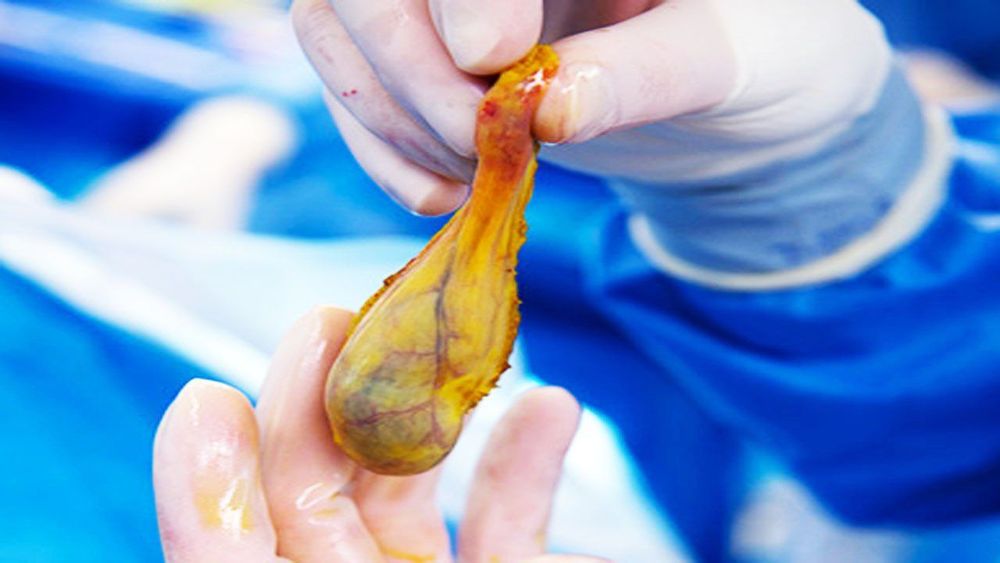
Polyps are small in size, but grow in large clusters in the gallbladder (polyposis). Polyps grow abnormally fast, easily spread or increase in number and size in a short time. Polyps develop in people over the age of 50. Polyps are symptomatic and cause frequent cholecystitis. Polyps in people with primary sclerosing cholangitis or gallstones. Monitoring the growth of polyps as well as the symptoms that polyps cause is what the patient needs to do now. You may also be considered to have your gallbladder removed to prevent polyps from developing cancerous malignancies. However, whether it is necessary to remove the gallbladder or not is still subject to the doctor's prescription. Cholecystectomy should only be done in cases where there is a high risk of developing malignancy.
Usually gallbladder polyps with small size less than 10mm do not need surgery, but every 3-6 months for follow-up examination if polyps are found to be twice as big as the previous examination or the legs are spreading, irregular shape or If there are clinical symptoms such as frequent fever and pain, when there is suspicion of malignant polyps, surgery to remove the gallbladder is necessary.
Currently, cholecystectomy by laparoscopic method should not affect much health during surgery. But regardless of the method of surgery, there can still be some digestive complications. As we all know, the gallbladder is a storehouse for bile to pour into the intestines when we eat, after the gallbladder is gone, the bile produced by the liver continuously day and night will pour directly into the intestines, causing a number of problems including: including: diarrhea, bloating, dyspepsia... In which diarrhea is the most common digestive complication. Therefore, patients after gallbladder removal need to adjust their diet such as eating less fat, increasing fiber from vegetables and fruits, dividing meals...
Vinmec International General Hospital is a one of the leading hospitals in the country for examination, diagnosis and treatment of digestive diseases.
Please dial HOTLINE for more information or register for an appointment HERE. Download MyVinmec app to make appointments faster and to manage your bookings easily.




